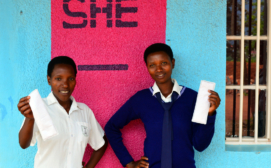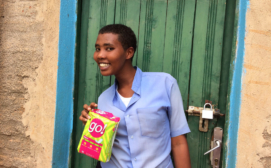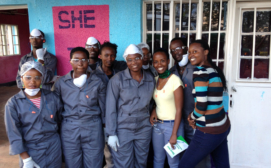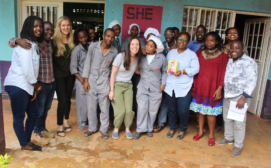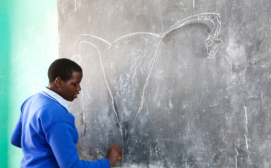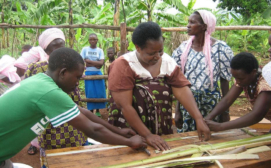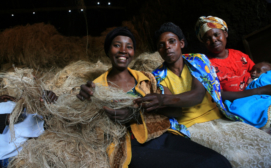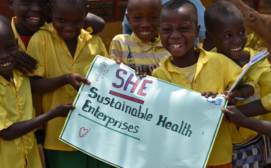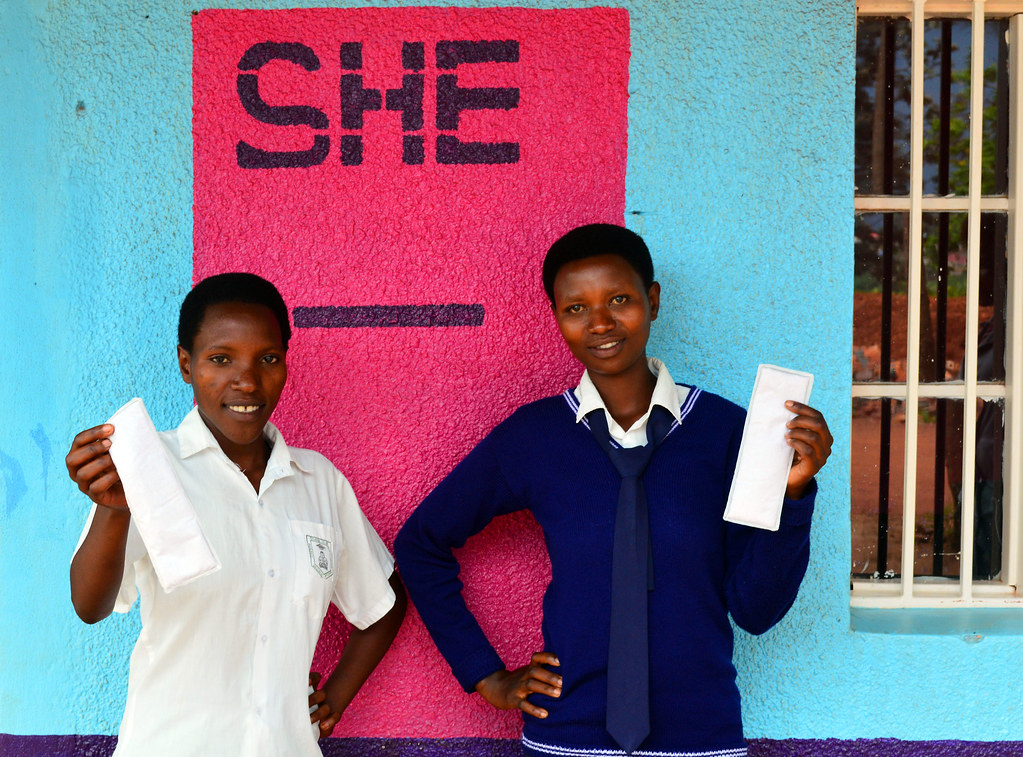
Duha schoolgirls with SHE LaunchPads, Ngoma Rwanda
Project Lead(s): Elizabeth Scharpf
Funding from Grand Challenges Canada will enable Sustainable Health Ventures (an initiative of Sustainable Health Enterprises) to empower an estimated 225,000 hard-to-reach rural adolescent girls in Rwanda with high-quality menstrual pads and to educate 7,300 adolescents at more than 100 schools about menstrual health within 3 years.
A survey from Sustainable Health Ventures says 18 percent of women and girls in Rwanda miss out on school and work each year because they cannot afford to buy menstrual pads. Sustainable Health Ventures empowers women and girls to live more productive lives by manufacturing and distributing affordable menstrual pads, coupled with menstrual health education and advocacy.
Developed with earlier funding from Grand Challenges Canada, Sustainable Health Ventures’ patented process converts locally-available banana fibers into the absorbent core of disposable menstrual pads without the use of chemicals. The pads are sold at an affordable price-point to women and to schools where they can be given to girls who need them.
Complementing the product is a comprehensive menstrual health curriculum designed to debunk myths and taboos about menstruation in schools and nationwide, developed and delivered in partnership with the Rwandan Ministries of Health and Education. The curriculum is designed to be integrated into existing national training for teachers and community health workers, maximizing its impact on hard-to-reach adolescent girls.
Johnson & Johnson, a key project partner, is helping Sustainable Health Ventures shift from manual to semi-automated pad production process, reducing production costs and laying the foundation for expansion to other low- and middle-income countries. Other partners include Vitol Foundation, PIMCO Foundation, Serena Foundation, and additional individual and corporate donors.

